Life
Sign up for our newsletter
We summarize the week's scientific breakthroughs every Thursday.
-
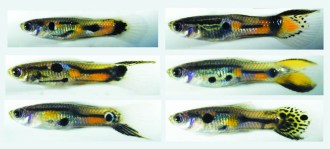 Animals
AnimalsThe hottest guy guppies stand out in a crowd
A new study shows that sexy male guppies are the ones who stand out the most, the rarest in the crowd. But what is the rare male effect for?
-
 Neuroscience
NeuroscienceBacteria may transfer mom’s stress to fetus
Expecting mice under psychological pressure passed different mix of microbes to their pups, affecting the babies’ brains.
-
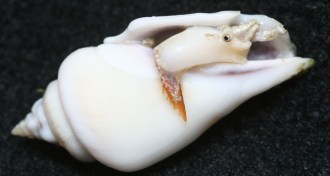 Animals
AnimalsGassed snails can’t jump
When exposed to high levels of carbon dioxide, some snails move like slugs and others don’t jump at all.
-
 Life
LifePenguin’s flight from Antarctica clocked
A climate shift millions of years ago may have forced the birds’ ancestors to flee to warmer digs.
By Beth Mole -
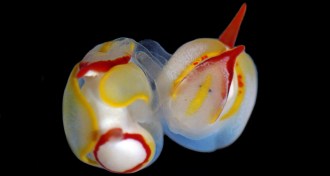 Animals
AnimalsSea slug mating features a stab in the head
Newly discovered hermaphroditic sea slug deploys specialized needle-thin organ for injections near the eyes.
By Susan Milius -
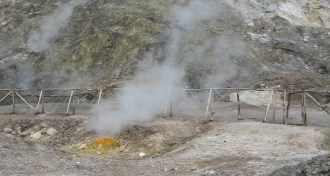 Microbes
MicrobesSurprising metals found in microbes
Scientists discover the first case of an organism needing a rare earth element for survival.
-
 Animals
AnimalsDeer and other animals can survive being impaled
Whether they are hunting shots gone wrong or something more sinister, stories of animals surviving such misfortunes are not uncommon.
-
 Neuroscience
NeuroscienceMold chemical linked to movement disorder
Fruit flies’ brains and human cells show Parkinson’s-like changes when exposed to fungi toxin.
-
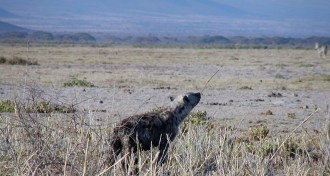 Microbes
MicrobesMicrobes help hyenas send status updates
Bacteria in the animals’ waste give off fumes that let passersby know who has been there before.
-
 Genetics
GeneticsGenetic difference in blood clotting may underlie racial health disparity
Finding could help explain difference between blacks and whites in heart attack survival.
-
 Paleontology
PaleontologyOldest bug bonk
Preserved as fossils, two insects remain caught in the act 165 million years later.
-
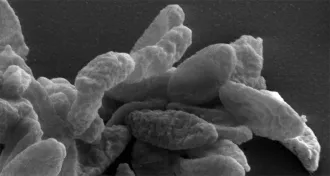 Microbes
MicrobesGut bacteria can drive colon cancer development
Gut microbes may reveal who is at risk for colon cancer, a study in mice suggests.